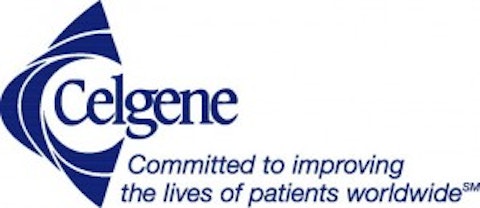
What Is Revlimid?
Revlimid is already approved to treat multiple myeloma and myelodysplastic syndromes (MDS), but is testing the drug on several forms of lymphoma and leukemia. It’s also trying to expand its use in multiple myeloma and MDS.
Celgene Corporation (NASDAQ:CELG) has one of the largest pipelines in the biopharmaceutical industry, but a large bulk of that pipeline revolves around its five FDA-approved drugs. In fact, Revlimid is being tested in nine total clinical studies. One of those studies delivered a potentially big blow on Thursday.
Revlimid is mostly being developed to treat forms of blood cancer, and is being tested in three studies for leukemia. One study was in B-Cell chronic lymphomatic leukemia for the elderly. In the 450-patient study, split into two near-equal groups, 34 treated with Revlimid died, while 18 on another drug passed away. This shows that Revlimid accelerated or caused the death of patients in this one indication, which forced the FDA to discontinue the study.
Initial analysis says that Revlimid is not the primary driver to Celgene Corporation (NASDAQ:CELG)’s future, and that the company’s pipeline is large enough to handle a few disappointments. While this may be true, Revlimid’s sales grew 16% last quarter, and contributed $1 billion to the company’s $1.43 billion in total revenue. Therefore, Revlimid is very important to Celgene Corporation (NASDAQ:CELG).
The Importance Of Off-Label Usage
As a 20-year veteran in the biopharmaceutical space, with high roles in both R&D and in marketing, I think this news could be more impactful then people realize. To explain, Questcor Pharmaceuticals Inc (NASDAQ:QCOR) lost 50% of its valuation last year. A government investigation into the marketing practices of its only drug, Acthar Gel, created panic among shareholders.
Allegedly, Questcor Pharmaceuticals Inc (NASDAQ:QCOR) was inappropriately marketing Acthar, or was trying to market Acthar in the treatment of off-label diseases. There were also allegations regarding insurance coding and the advertised benefit of the drug.
Questcor Pharmaceuticals Inc (NASDAQ:QCOR) has recovered, still producing 40% sales growth, and is now trading near its 2012 all-time highs. However, Questcor’s marketing practice is not uncommon. Companies that rely on the sales and success of one product will often test the drug in multiple clinical trials, as seen with Celgene Corporation (NASDAQ:CELG). Then, if trials progress as planned, companies will begin to advertise, disclose early study results, and produce off-label sales for indications that are being studied.
Too Dependent On One Drug?
Now, I am not saying that Celgene Corporation (NASDAQ:CELG) is definitely involved in this practice, but I do believe it’s possible. The company earned $3.7 billion from sales of Revlimid last year. Yet analysts believe the drug could reach peak global sales of $6 billion. Therefore, at 60% of peak sales, it’s reasonable to suggest that off-label usage is occurring, with only two of its 11 possible indications FDA approved.
One problem for Celgene could arise if the product is already being used for off-label indications, or those that are being tested in clinical trials. If so, this failed study and the number of deaths that occurred could make prescribing physicians fearful.
To investors, we typically view blockbuster drugs as having little risk, but those additional trials and sought indications are very important for continued success. A company that is trying to fight cancer already faces a disease that evolves rapidly, but in the case of Celgene, it is especially vulnerable because so much of its upside is tied to Revlimid.
Conclusion
Celgene is a $55 billion company, trading at 10 times sales. Yet, Celgene Corporation (NASDAQ:CELG) has top-line growth of just 15%, which makes it the slowest growing biopharmaceutical company that trades over 10 times sales. Therefore, I view Celgene as very risky right now, and I want to see how Revlimid performs over the next several quarters. If sales remain strong, then Celgene didn’t miss a beat with this failed study. But, if sales fall, then this failed study had more than what Wall Street obviously projected. If so, then Celgene’s valuation could fall drastically.
The article Does This BiotechStudy Matter to You? originally appeared on Fool.com and is written by Sherrie Stone.
Sherrie Stone has no position in any stocks mentioned. The Motley Fool recommends Celgene. Sherrie is a member of The Motley Fool Blog Network — entries represent the personal opinion of the blogger and are not formally edited.
Copyright © 1995 – 2013 The Motley Fool, LLC. All rights reserved. The Motley Fool has a disclosure policy.


